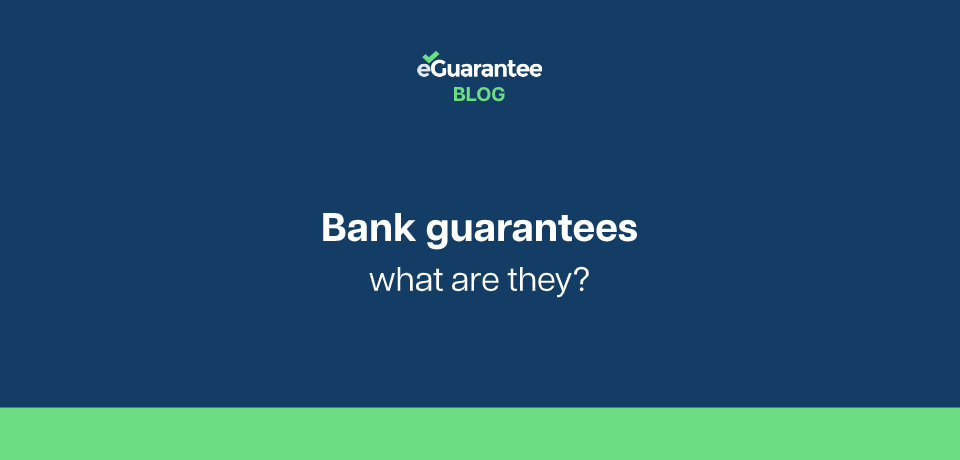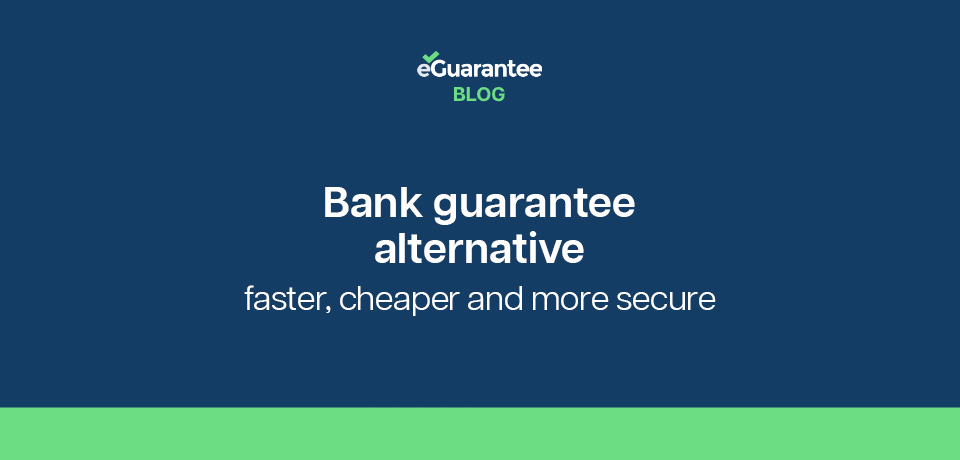
February 6, 2023
What is a bank guarantee? How do they work?
When a commercial landlord leases their property to a business, there’s always the possibility that the tenant may fail to uphold their contractual obligations set out in the lease agreement. Be it an unexpected downturn in business leading to poor cash flow and withheld rental payments, or the property being left in an unacceptable condition at the end of the lease, circumstances like these can leave the landlord at financial risk.
To protect themselves from these types of situations, landlords will often require some form of financial assurance from the tenant to ensure that they will meet the terms and conditions of the contract. This is where bank guarantees come in.
So, what’s a bank guarantee?
A bank guarantee is a written undertaking by a bank or lending institution. It assures the beneficiary that they will receive the payment amount specified in the guarantee if the applicant defaults or breaches the terms of the contract. As such, the transaction typically involves the following three parties:
-
- The applicant. This is the bank’s client (e.g. commercial tenant) who seeks to be issued the bank guarantee.
-
- The guarantor. This is the bank or financial institution (often a holder of an Australian Credit License) that issues the bank guarantee.
-
- The beneficiary. This is the party (e.g. landlord, supplier or other business partners) who receives the bank guarantee from the applicant.
The guarantee is an alternative to providing a cash deposit and is used extensively in construction contracts and commercial leases.
What is a bank guarantee for a commercial lease?
In the context of commercial leasing, a bank guarantee provides the landlord (the beneficiary) the security of a guaranteed payment of tenant (the applicant) debt. Because of this, landlords will often request prospective tenants to secure a bank guarantee in order to enter into a lease agreement.
This is done to protect the landlord from falling into vulnerable financial circumstances due to non-payment of rent, damage to property or failure to ‘make good’ the premises at the expiry of the lease. In the event that the tenant engages in any of these activities or otherwise breaches the terms of the contract, the bank is legally required to pay the landlord all or part of the lease security to cover any outstanding debt.
However, if the tenant has upheld the terms and conditions of the lease agreement and no claim has been made at the date of expiry, the lease security may be returned to the tenant.
Features of a bank guarantee
All bank guarantees are generally issued with the following conditions:
-
- On-demand/Unconditional. Bank guarantees are often payable on-demand. This means that the landlord is able to make a claim on the guarantee without proof of default or damage. Additionally, the bank is not obligated to first inform the tenant that a claim has been made. In practice however, banks tend to contact the tenant to inform them of the demand.
-
- Irrevocable. After the bank guarantee has been issued it cannot be revoked unless there is a mutual agreement between all three parties. This provides the landlord with a high degree of assurance that the payment obligation will be carried out.
-
- Independence. This refers to the fact that the bank’s payment obligation is entirely unrelated to any dispute between the landlord and tenant. This means that if the landlord decides to make a claim on the guarantee, the tenant generally has no recourse to prevent it. However, there are exceptions, such as when the landlord is acting fraudulently, in which case the tenant can seek legal intervention.
-
- Expiry date. Bank guarantees can come either with or without an expiry date. At expiry, the landlord is no longer entitled to call upon the business banking team to fulfil the payment obligation. At the same time, it ensures that the lease security will be returned to the tenant, provided that no previous claim has been made. While open-ended guarantees are generally preferred by landlords, those with expiry dates can also offer ample protection by extending the expiry date six to twelve months beyond the end of the lease term. This way, there’s enough time for the landlord to pursue any outstanding debt.
How much does a bank guarantee cost?
Upfront cost
Generally, banks will require that applicants secure their commercial bank guarantee by supplying some form of asset. With banks typically offering flexible security options, applicants tend to have the choice of providing either cash, residential property or commercial property as collateral. Without some form of security (i.e. cash or property) provided upfront, bank’s will generally refuse to issue a bank guarantee.
Establishment fee
Often the issuing bank will charge a one-off fee to issue the bank guarantee. This is charged as either a flat fee or a small percentage of the total lease security.
Ongoing fees
It is common for the issuing bank to charge regular service fees, usually in six month intervals at around 2.5% of the bank guarantee amount.
What are the drawbacks to bank guarantees?
While bank guarantees might be a step up from traditional cash bonds, they come with their own set of rigid requirements that can be a source of distress for tenants and landlords alike.
Large upfront costs
By demanding large sums of capital or collateral up front, bank guarantees place undue financial pressure on commercial tenants. At the same time, this discourages both tenant attraction and retention, negatively impacting landlord cash flow.
Worryingly unsecure
With many banks and lending institutions continuing to rely on paper as proof of authentication, landlords and tenants are ultimately put at a higher risk of fraudulent bank guarantee transactions.
eGuarantee’s bank guarantee alternative
As the first of its kind to be offered to the Australian and New Zealand market, eGuarantee’s lease bond solution replaces bank guarantees as the new standard for commercial lease security. Now tenants and landlords can enjoy superior financial and administrative benefits with all the protection and legal credibility of a traditional bank guarantee.
No large upfront costs
With an eGuarantee lease bond solution, tenants can forget about having to provide large sums of capital at the start of their lease. As a non-cash, non-collateral lease security, eGuarantee allows commercial renters to improve their financial situation by freeing up their working capital to invest back into the growth of their business. At the same time, this places landlords in a better position to attract new tenants and incentivise lease renewals with instant cash-back on existing bank guarantees.
Enhanced security
As a completely digitised form of lease security, eGuarantee lease bonds allow both tenants and landlords to avoid the unwanted exposure of outdated paper authentication. Have peace of mind knowing that your lease securities are safe and secure, stored on an encrypted platform.





